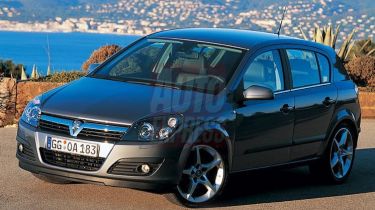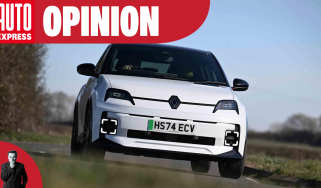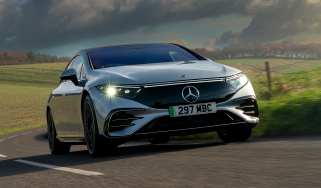Vauxhall Astra
Given all the hype surrounding the new Astra's launch, it's refreshing to note sports fans haven't been left out in the cold. While the 1.6-litre petrol and 1.7 CDTI diesel will undoubtedly account for most showroom traffic, a smaller band of buyers will be making a beeline for the hot models.
Well done Vauxhall for offering a sporty Astra from launch. The 170bhp engine is strong, smooth and suits the revised chassis. It may not be exciting to drive, but the Turbo is competent in corners and delivers satisfying pace. The car should be a hit, but the high emissions may deter business buyers.
Given all the hype surrounding the new Astra's launch, it's refreshing to note sports fans haven't been left out in the cold. While the 1.6-litre petrol and 1.7 CDTI diesel will undoubtedly account for most showroom traffic, a smaller band of buyers will be making a beeline for the hot models.
A 2.0-litre Turbo version with 200bhp will appear this autumn, but Griffin fans who can't wait that long are well cat-ered for. A low-pressure turbocharged version of the 2.0-litre is available from launch on 1 May, as is an exciting hot diesel.
The petrol unit is carried over from the outgoing Astra. That's no bad thing - the Luton firm has a long history of building good engines, and this turbocharged four-cylinder is no exception. With 170bhp and 250Nm of torque, it's a strong performer, propelling the Astra from 0-60mph in 8.4 seconds.
But it's the manner of this performance that's so impressive - there's no apparent effort on the car's part. The turbo spools up from 2,000rpm, with boost building progressively through the meaty mid range. Virtually free of lag, there's no danger of power arriving suddenly. Even if it did, the Astra's dynamics would keep the chassis under control.
The sports versions are lowered by 15mm, but the differences over standard models are largely negligible - although they do have one or two neat tricks. Firstly, there's a BMW-style Sport button that sharpens the damper, throttle and steering settings in the engine management system, making the car more responsive. It's a gimmick more than anything else, though, so you'll be disappointed if you expect a transformation.
More impressive is the £440 IDS (Interactive Driving System), which integrates the ABS and ESP stability control systems, and includes CDC (electronic Continuous Damping Control) to make the car as stable as possible. This is the Astra's real strength. It's not as much fun as a Ford Focus, but it's incredibly sure-footed, easy to drive fast and better balanced than any Vauxhall bar the VX220.
The 2.0 Turbo comes in SRi or Design trim, and Vauxhall has tried to ensure it looks the part. With crease lines up the bonnet and along the shoulders, it's visually much stronger than before.
But the biggest impression is made by the 18-inch alloys. Vauxhall expects more than half of SRi buyers to opt for this £200 upgrade. The only downside is the ride quality over sharp bumps, which causes the steering to kickback.
In terms of cost, the Astra SRi Turbo looks good value at £17,195, coming with a six-speed manual gearbox, sports seats and a full complement of airbags. But running costs could be its downfall. The car averages only 31mpg and CO2 emissions are high at 218g/km.



